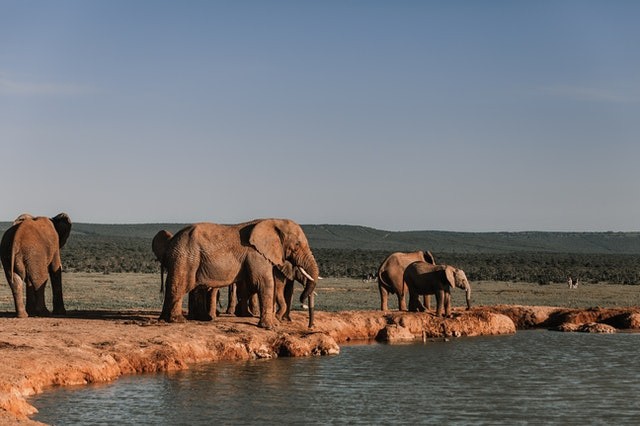Large animals like elephants and rhinoceros may help to restore ecosystems and combat global warming, according to a new study.

Role of Large Animals in Building Complex Ecosystems
Professor Yadvinder Malhi, of the University of Oxford's Environmental Change Institute, said that trees and carbon, or huge creatures, which have a broader appeal to conservationists, are frequently the focus of conservation efforts.
According to Phys.org, protecting and restoring large animal biodiversity in the context of combating and adapting to climate change was the focus of this study, which examined the feasibility of aligning these priorities.
Ecosystems dominated by large animals like elephants and rhinoceros can help moderate climate change by increasing carbon storage and albedo (the capacity of surfaces to reflect solar radiation) as well as regulating fire regimes, according to a new study.
In addition to dispersing seeds and clearing vegetation, large herbivores enrich the soil, all of which contribute to the development of more complex and robust ecosystems.
Maintaining and increasing carbon stocks in the soil, roots, and above-ground sections of plants can help minimize CO2 emissions in the atmosphere.
As a result of their grazing and trampling of vegetation, large animals in polar climates can expose snow-covered ground beneath the formerly dense understory of shrubs and trees.
More solar radiation is reflected into space by open habitats, which are lighter in color (and hence have a higher albedo) and thus cool the Earth's surface rather than warm it.
Large Animals are Capable of Reducing Wildfire Risks
Global CO2 emissions from wildfires are expected to hit a record high in 2021. Greenhouse gases are released into the atmosphere when trees and vegetation are burned.
In order to reduce wildfire danger, large herbivores can reduce the risk of fire by eating woody plants that would otherwise feed the fires, trampling trails, and forming other gaps in vegetation that serve as a firebreak.
According to the study, which was commissioned by the wildlife charity Tusk, there are various ways that protecting and restoring large animal biodiversity can aid in the fight against climate change.
Large animals can prevent forest and bush fires, enhance albedo, and assist hold onto carbon in flora and soil in temperate, tropical, and subtropical grassland ecosystems, as per ENN.
The local biodiversity and ecological resilience are supported by the protection of huge animals and their involvement in these complex ecosystems.
Tundra habitats benefit from the presence of large herbivores because woody plant encroachment is reduced, allowing native blooming plants and grasses to flourish and increasing the surface area exposed to the cold air. Maintaining permafrost and preventing carbon from being released into the atmosphere is facilitated by this exposure.
Conservation and climate change adaptability can go hand in hand when rewilding bison and other wildlife in the Arctic tundra.
How Large Animals Help in Capturing CO2
Whales and other large marine creatures fertilize phytoplankton in marine habitats. As much as 37 billion tons of CO2 can be absorbed each year by phytoplankton, which can also produce airborne particles to seed clouds and reflect sunlight back into space.
They are also affected by the amount and behavior of herbivores, which in turn affects these processes.
There are still many unanswered questions about the Earth's soils and oceans, which could lead to new prospects for recovering large animal biodiversity and addressing climate change, according to Professor Malhi's conclusion.
The complete paper "The role of large wild animals in climate change mitigation and adaptation" was published in Current Biology.
Related Article: Return of Large Mammals Could Improve World's Ecosystems
For more news, updates about large mammals and similar topics don't forget to follow Nature World News!
© 2026 NatureWorldNews.com All rights reserved. Do not reproduce without permission.





